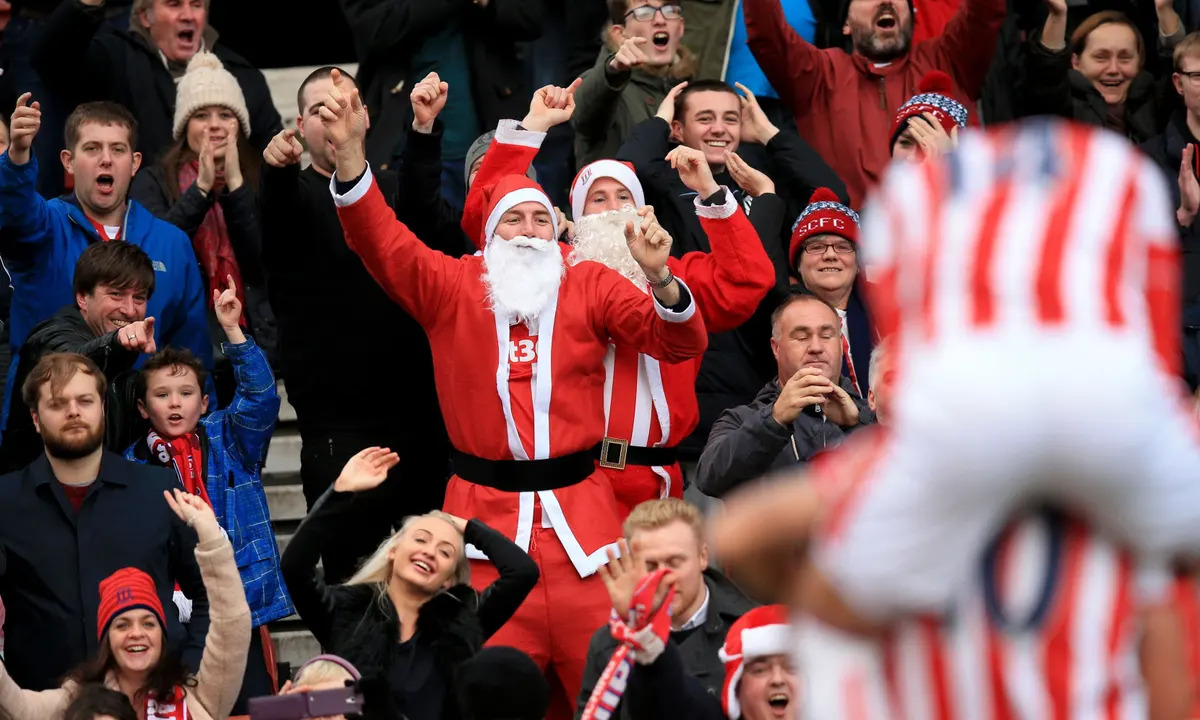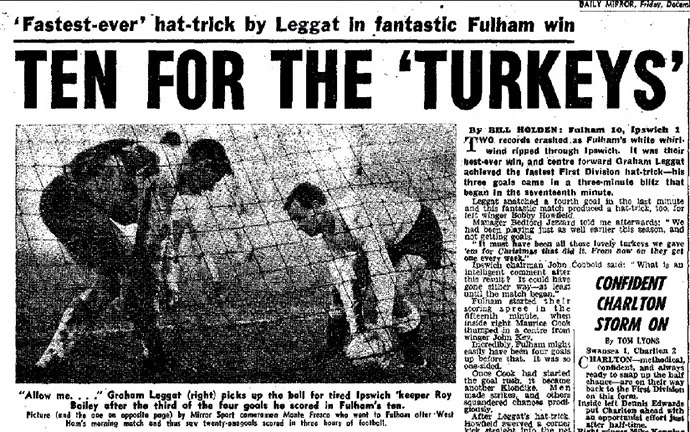After an electric and grueling World Cup, we’re already on the precipice of the return of league football. With Boxing Day fixtures signaling the return of the Premier League, we look back at how the day after Christmas became synonymous with football.
With the 2022 World Cup still so prominent in our rear-view mirrors, you wouldn’t be at fault to have not yet started thinking about the return of Premier League football. Yet the infamous Boxing Day fixtures — an ever-present and prominent feature of the English football calendar — are just a few days away.
Come Boxing Day it will be only one week since the end of the World Cup, an almost laughably quick turnaround for the Premier League players returning from Qatar. It will be the first top-flight league in Europe to return on a full-time basis since the end of the global tournament.
So, why are the FA eager to get their top league going again so soon?

Boxing Day football has become a Christmastime staple on the British Isles and is as traditional as Thanksgiving football in the United States. The powers that reside over football in England, Scotland, and Wales couldn’t forego this now customary part of the Christmas schedule as it is the most popular footballing date of the season. More than 500,000 fans will flock to stadiums to watch their sides in the hope that they can prolong their festive cheer for a few more hours.
It’s a prominent day for the lower-league clubs as well, as those who host Boxing Day fixtures have seen an average of 97% capacity (stats pre-pandemic). But how did this tradition begin? It dates back over 160 years ago, when the two oldest football clubs Sheffield FC and Hallam FC faced each other on December 26, 1860.
Not only was this the first-ever Boxing Day football match, but the first football derby as well. Sheffield, founded in 1857 and recognized as the oldest club on the planet, won the game 2-0.
Despite this being the first Boxing Day fixture, the idea didn’t become a regular feature of the football calendar until after the First World War. This stems from the Christmas truce in 1914 between the two sets of troops: A ceasefire that evolved into the two sides organizing a football match in no man’s land.
“Suddenly, a Tommy came with a football, kicking already and making fun, and then began a football match,” Lieutenant Johannes Niemann of Germany’s 133rd Saxons Infantry Regiment wrote in his journal. “We marked the goals with our caps. Teams were quickly established for a match on the frozen mud, and the Fritzes beat the Tommies 3-2.”
When the war ended, football resumed in England, and local clubs would organize a couple of games against each other to take place across Christmas Day and Boxing Day.
By 1957, Christmas had become a day for the family, which led to all the games on the 25th being shifted one day forward. As travel improved and the leagues evolved, the Boxing Day matches became highly anticipated for the attending supporters.
Fans who perhaps wouldn’t attend games throughout the season make an extra effort to attend on Boxing Day, to show their appreciation for their teams at a special time of year. The tradition continued and has seen some memorable games.

The now infamous Boxing Day of 1963 saw 66 goals scored across 10 top-flight games, a record that will most likely never be beaten, and included a 10-1 win for Fulham over Ipswich.
With all the history and (let’s face it, mostly) money involved, it’s easy to see why the FA were determined to resume the Premier League on Boxing Day, despite the short turnaround following the World Cup.
Brentford and Tottenham Hotspur kick off this year’s games in a London derby at 12:30 p.m. GMT, while four games take the more common 3 p.m. slot.
Aston Villa welcome Liverpool in the 5:30 p.m. game, and West Ham-Arsenal takes place at 8 p.m. to round off the day.
Some clubs have a little longer to wait, as Chelsea vs. Bournemouth and Manchester United vs. Nottingham Forest fill TV slots on the 27th, and Champions Manchester City travel to Leeds on the 28th.
While the FA intends to have the Premier League return with a bang on Boxing Day, the short recovery period for those who played in Qatar may almost certainly hamper the players’ performances. Yet as concerned as we are for player health and safety, most of us football fans will nonetheless be tuned in come Boxing Day, whether on our screens or in person.








